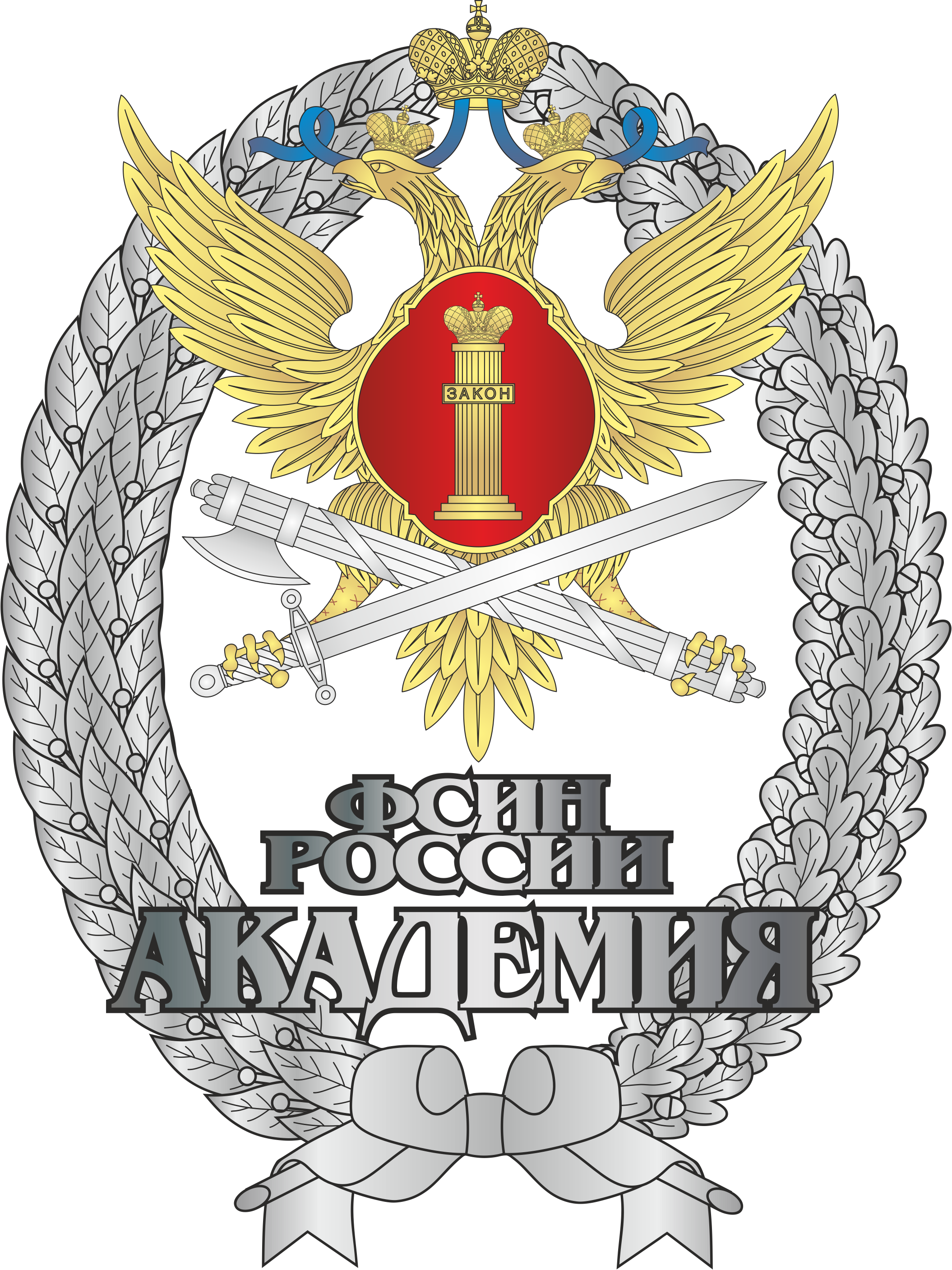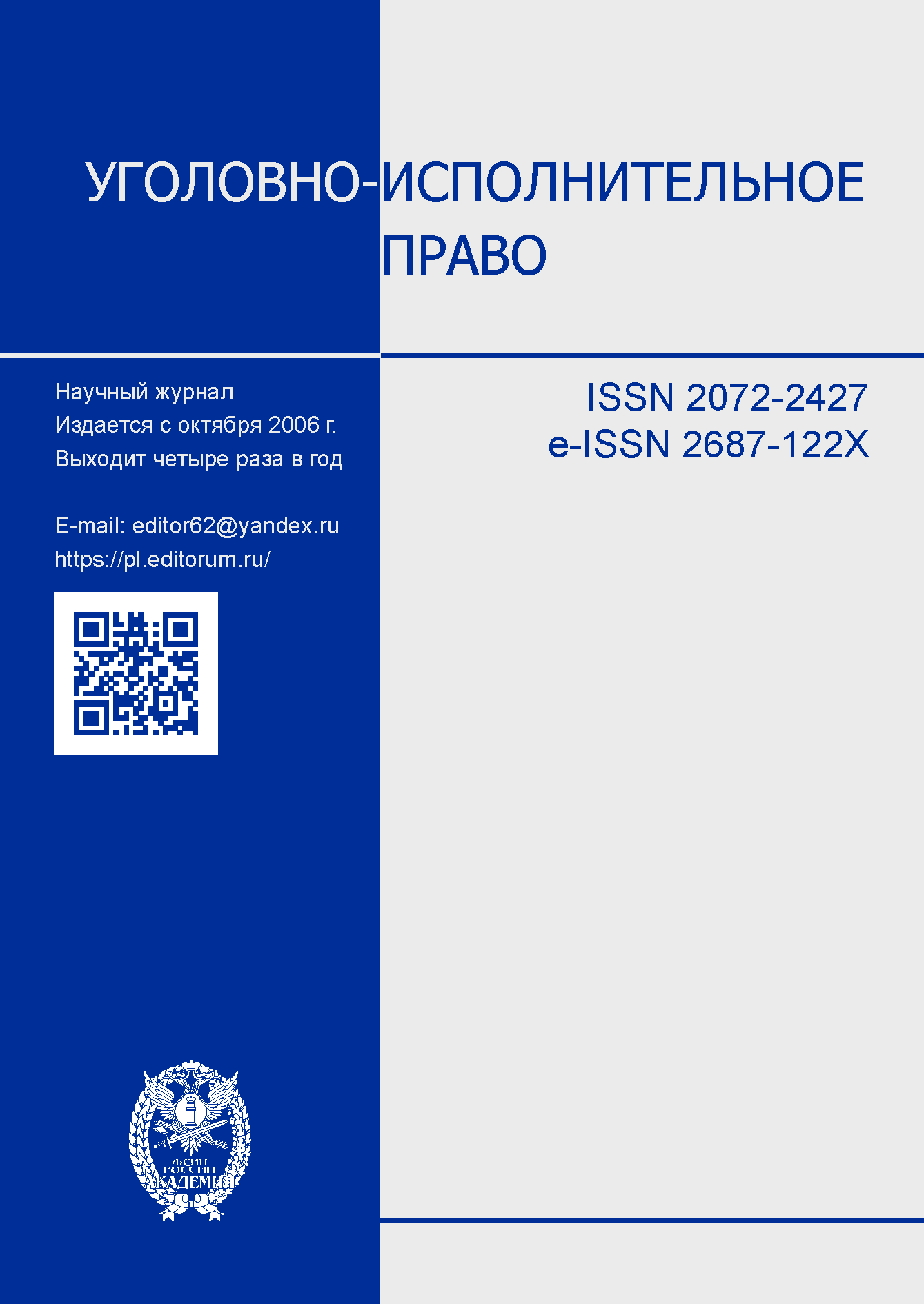UDC 34
Penal Code of the Russian Federation includes the number of ficton norms which are aimed at the results desired by the legislators, but because of the lack of organizational and psychological conditions coming from the executor of law they are never applied or rarely applied.In particular, they are contained in part 1 article 1 - defined goal is the correction of convicts which means the development of their respect to a person, society, labor, norms and rules of human coexistence (part 1 article 9 of the Penal code of the Russian Federation).To achieve such a goal in closed from society correctional institutions is impossible. This was confirmed by the conducted research: the majority (60 %) of correctional officers defined as the main not the correction of convicts, but ensuring compliance with the rules of the regime by convicts; also, the majority of convicts (81 %) replied that they didn’t repeat crimes not due to the educational system, but because of the fear of a new conviction; part 2 article 2 - assistance to convicts in social adaptation. In reality such assistance can be provided only in conditions of freedom, and the norms of the legislation “do not reach” this sphere of social relations, as they are aimed only on the execution of punishment and preparation of convicts for release.In conditions of freedom there is no service that would treat the released persons, so it is proposed to replace the purpose of the penal legislation i.e. the correction of convicts for their re-socialization, which is associated with the social adaptation of the released; Article 97 which provides for the departure of convicted persons from the correctional institution. This possibility is provided very rarely, and in some subjects of the Russian Federation it is not provided at all.It is proposed to include such departures in the rules of the Penal code of the Russian Federation establishing the conditions of serving sentences for each type of regime of correctional colonies, along with the provision of visits, receiving parcels, etc.; part 1 of Article 89 which provides the possibility of convicts to have long visits outside the correctional institution. In most of the subjects of the Russian Federation these visits are not provided at all because of the fear of the correctional institution administration that they will violate the rules or commit new crimes. It is proposed to include the long-term visits as an element of the conditions of punishment in each type of correctional colonies; Article 182 which establishes the right of convicts to work and live in a household. This right is declared, since the law does not provide the obligatory law for the state, but only requires the notification of the employment service and local public authorities to assist released persons to find the work and accommodation.
impossibility to correct the convicts, resocialization of convicts, maintain the regime in a correctional institution, assistance to convicts in social adaptation, departure of convicts outside the correctional institution, long visits with living outside a correctional institution, conditions of serving a sentence, labor and household assistance of the released
1. Gorban' D. V., Yuzhanin V. E. Prozhivanie osuzhdennyh za predelami ispravitel'nyh uchrezhdeniy kak stadiya progressivnoy sistemy otbyvaniya lisheniya svobody: problemy teorii i praktiki : monografiya. Tomsk, 2016. 191 s
2. Dendeber S. N. Institut vyezdov osuzhdennyh k lisheniyu svobody za predely ispravitel'nyh uchrezhdeniy : avtoref. dis. … kand. yurid. nauk. Ryazan', 2012. 23 s











